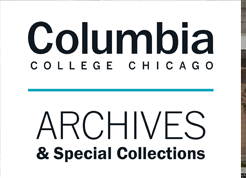Dr. Micah Salkind is the Deputy Director of The City of Providence Department of Art, Culture, and Tourism and Adjunct Assistant Professor of Humanities in the Department of American Studies at Brown University. As part of his work, he collaborates with large non-profit cultural institutions as well as emerging artists, designers, and creative entrepreneurs. He also serves on the boards of the Providence Public Library and Community MusicWorks and is an ongoing collaborator with dancers and scholars in Chicago’s Honey Pot Performance collective and Matthew Cumbie Projects’ “Growing Our Own Gardens” initiative.
A DJ, sound designer, and curator, he is the author of Do You Remember House? Chicago’s Queer of Color Undergrounds for which these oral history interviews were collected. The work "historicizes house music, the rhythmically focused electronic dance sound born in the post-industrial maroon spaces of Chicago's queer, black, and Latino social dancers. Working from oral history interviews, archival research, and performance ethnography, it argues that the remediation and adaptation of house by multiple and overlapping crossover communities in its first decade shaped the ways that contemporary Chicago house music producers, DJs, dancers, and promoters re-remember and re-animate house as an archive indexing experiences of queer of colour congregation."
Currently, the audio files and biographical information are available; transcripts will be added when complete.
-

Interview with David 'Risque/Global Groove Guru' Walker
Micah Salkind
David “Risqué” Walker, aka The Global Groove Guru, may be best known as the dancing Indian at The Chosen Few Old School Reunion Picnic, but his house music bona fides run deep, all the way back to 1979 when Wayne Williams and The Chosen Few Disco Corp. began promoting parties at The Loft on 14th and Michigan. Born in Englewood, but raised all over the South Side, including in South Shore and West Pullman neighborhoods, David Walker came up on the danceable funk and soul of Chicago’s version of Soul Train. He remembers going to dance at Mendel before he got a taste of The Loft, but once he found the underground, he never looked back. In 1979 Walker had started his freshman year at Western Illinois University in Macoma, where he and his friend Michael Benson helped promote a Dukes and Duchess chapter for Black students as an alternative to the Greek system. The project turned into a promotional entity, Gentleman’s Unification of Conceptional Individuals, or Gucci, which Walker brought back with him when he returned to Chicago. He also created a party-promoting entity called Rare Sounds and Space with Roy McAlister and the late Howard Williams. At eighteen years old, Walker/Gucci began promoting parties at Sauer’s, a German restaurant in the South Loop with DJs Andre Hatchett and Celeste Alexander. He made history when he brought a young musician-cum-DJ with conservative parents named Steve Hurley to perform there for a DJ battle. Walker’s brief and illustrious career as a risk-taking dance party promoter was cut short when he left Chicago to join the US Marine Corp. in 1982. He spent the next couple years traveling the world before returning to the city in the early 1990s following a stint working as an actor and model in New York, where he also moonlighted as a security guard who produced events at legendary clubs like The Choice, Better Days, and The Tunnel. He would go on to work from 1992 to 1998 at Red Dog, produce parties in The Cabaret Room at KA-BOOM!, and perform with Vic Lavender and Jere McAllister in the group Mr. ALI.
-

Interview with Duane Powell
Micah Salkind
Duane Powell's love for music started an early age. Growing up in the 1970's he was exposed to Chicago's rich soul music scene by his uncles, who were disc jockeys. Artists in their orbit included Minnie Riperton, The Emotions, Chaka Khan, Miki Howard, and The Staple Singers. In 1985, Duane entered into the world of street promotions pounding the pavement promoting events for prominent DJs within Chicago's burgeoning house music scene, working primarily with Lil Louis. By 1990, Duane had done street promotions and served as marketing manager and consultant for many clubs and DJs, including the historic Powerhouse. In 1998, he became an import buyer for Cargo Music Distribution and by the end of that year, an employer at one of Chicago's most legendary record stores, Dr. Wax Records. It was his 12 years there that the title of "tastemaker" really took shape by almost single-handedly breaking several artists in the market.
-

Interview with Erik 'Mister' Wallace
Micah Salkind
Mister Wallace (born Erik Lamar Wallace II) is a Chicago native rapper, DJ, actor, and founder of independent label FUTUREHOOD. Their first solo offering came in the form of 2016’s FAGGOT EP. Combining hip-hop motifs with commanding dance riddims, Mister Wallace’s dynamic music celebrates queer culture and history both in its sonic spirit and in its provocative lyrical content.
-

Interview with Felicia Holman
Micah Salkind
Lifelong Chicagoan/artist and Prince "fam" Felicia Holman is an independent cultural producer/programmer and facilitator, as well as a co-founder of Honey Pot Performance. As both artist and producer, Felicia presents and supports innovative interdisciplinary art that engages audiences and inspires community.


